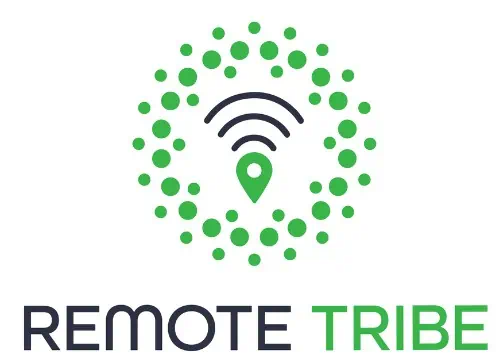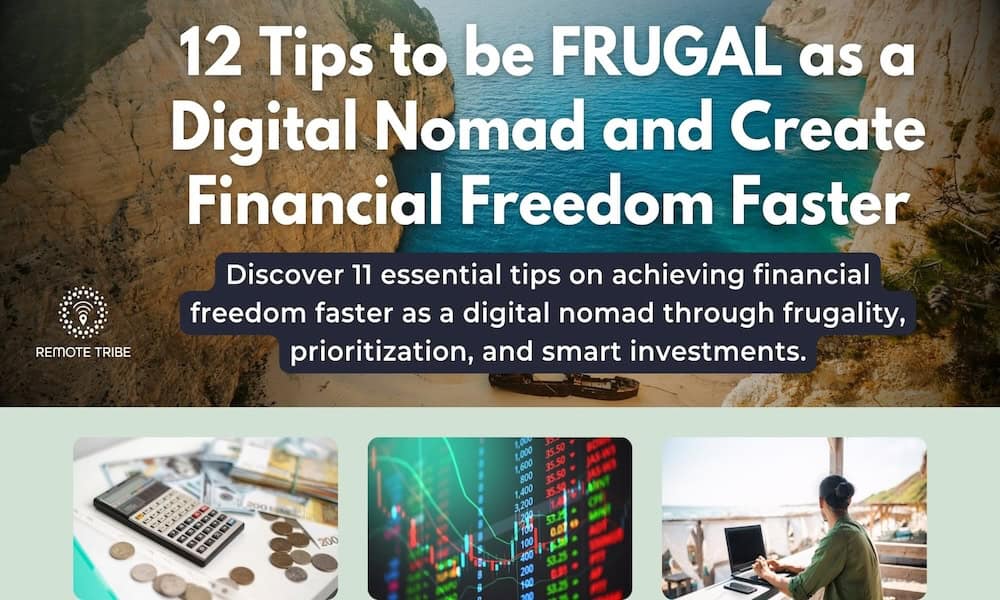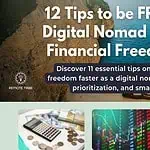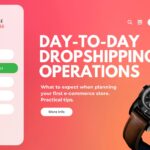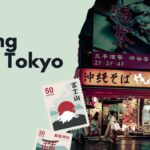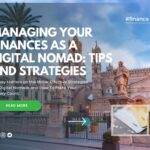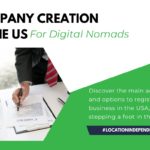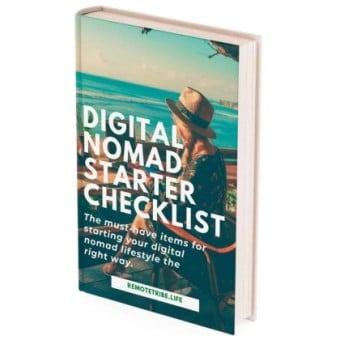Huh? How should frugality lead to financial freedom? Where’s the abundance mindset in that?! She must be running a negative money story. If you want to be rich, you need to live rich, NOW!
Yeah, something like that is the good old talk of a few, yet very loud, money coaches. I’m not even saying they’re wrong. Just painfully incomplete in their suggested mantras.
True financial experts might not agree on a lot, but they can agree on one thing: save and invest your money NOW so that you can reap the rewards later. That doesn’t mean that scarcity in your 20s and 30s must be the name of the game.
Rather than restriction, I’m suggesting that strategy and prioritization should be leading your every financial decision so that you can become financially independent, faster.
As a veteran digital nomad myself, I find it fascinating just how interconnected our mindset of freedom and financial planning are, or could be.
Many of us don’t think about our financial future, do we? We think of ways to save money as a digital nomad, without truly creating a plan towards financial freedom, do we?
If we’re not careful, our digital nomad finances can be somewhat skewed in perspective due to the differing economies we live in. This can shift our perspective on frugality, scarcity, and abundance without realizing it.
In recent years, I’ve created quite a few strategies to live a fully abundant digital nomad entrepreneur’s life in a way that allows me to abundantly save and invest to create true financial independence as fast as possible.
It is time to share them, so that you, too, can not only live abundantly but also invest abundantly. Turns out, a sense of frugality is key to freedom.
The below can be viewed as a guide toward digital nomad’s financial freedom. As such, it’s split into three crucial aspects: digital nomad money mindset, saving and investing, and digital nomad money habits.
The one thing this article doesn’t touch on is the creation of money through entrepreneurship. Wildly important in the pursuit of financial freedom, but beyond the scope of this article.
Table Of Content
- Digital Nomad Money Mindset
- 1. Create a "Priority Budget"
- Subscribe to our Newsletter
- 2. Strengthen your money mindset and literacy
- 3. Plan frugally, dream abundantly
- How to invest and save as a digital nomad
- 4. Prioritize your investments
- 5. Create freedom-aligned income projections
- 6. Establish a strong banking system before leaving (while) home
- Digital Nomad Money Spending and Habits
- 7. Pack and shop frugally: minimalism
- 8. Learn how to barter
- 9. Pay via a Travel Rewards Credit Card
- 10.Embrace being a slowmad (slow nomad)
- 11.Homesit
- 12. Rent like a local
- Conclusion
- About the Author
- You might also like
- 12 Tips to be FRUGAL as a Digital Nomad and Create Financial Freedom Faster
- How To Keep Day-To-Day Dropshipping Operations
Digital Nomad Money Mindset
1. Create a "Priority Budget"
To grow your business, prioritizing your projects and actions is a crucial ingredient to success. Similarly, to grow your financial freedom, prioritizing your monthly and daily spending is a crucial part of attaining freedom.
Rather than simply ‘saving money’, I recommend you create a priority budget instead. This is a monthly projected budget outlining every single expense: Rent, flights, visas, groceries, etc.
Once you’ve put down your expenses, note down your priorities according to your lifestyle.
If you love scuba diving, make that a priority budget line. If you’re big on health, make groceries and robust health insurance a priority line item.
On the other hand, if you don’t care so much about comfort on the road, flights and ground transportation might represent an opportunity to save money.
Ultimately, you should end up with a realistic budget that encourages abundant spending in certain areas of your life and frugal spending in other areas.
This will not only save you money (which can be put towards savings and investments), but it will also expand your budget for what truly matters.
Financial decisions will feel abundant thanks to having made decisions in your priority budget ahead of time.
Subscribe to our Newsletter
Get The Latest News On Digital Nomads, Money Online, Cool Remote Working Communities, And Much More.
Spam-Free, Unsubscribe anytime!
2. Strengthen your money mindset and literacy
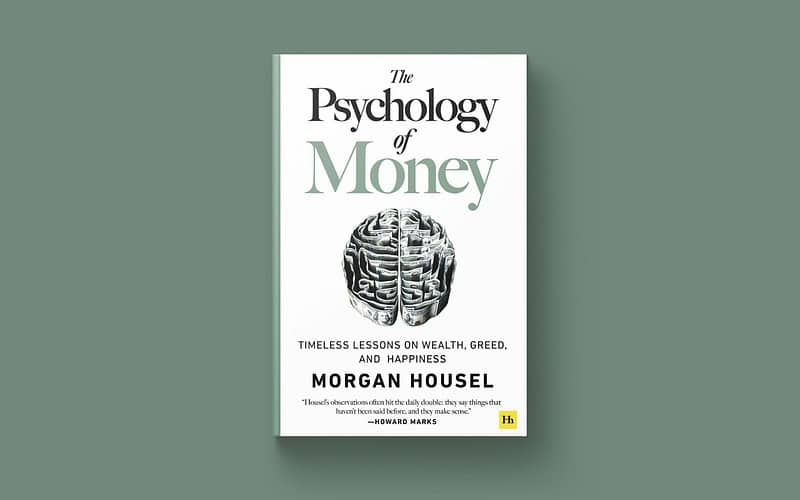
I can’t stress this enough. How you relate to money in thought is how you handle money in action. Beyond that, if you don’t know basic money language, you’ll ultimately run into roadblocks on your journey to financial freedom.
The great news is that a digital nomad mindset tends to already be one of freedom. Now it’s simply a matter of strengthening that mindset.
To uncover where your thoughts are keeping your income smaller than it could be (or your spending bigger than it needs to be), make it a priority to read books on money mindset.
Great examples are The Psychology of Money by Morgan Housel, Overcoming Underearning by Barbara Stanny, and You Are a Badass at Making Money by Jen Sincero.
As for money literacy, it’s not about getting a major in finance. Rather, you want to learn what to look for and ask about. Some great resources are Ramit Sethi’s Podcast and book, I Will Teach You to Be Rich (same name), and Stop Acting Rich by Thomas J. Stanley.
Additionally, I’d encourage you to get into the habit of examining the words you utter about money. Specifically, investigate your thoughts with this question: “Who told me that?” Some examples are:
- The rich are greedy. (Who told me that?)
- I don’t want to overcharge, or else I won’t sell anything. (Who told me that?)
- [item or city] is just too expensive for me right now. (Who told me that?)
3. Plan frugally, dream abundantly
Rich people make their fortunes by spending frugally. And that’s by no means being cheap. Frugal spending is simply the opposite of overspending. It’s also in stark contrast to lavish spending to ‘show off’ or ‘because you can’.
I want you to get whatever your most abundant dream is. Maybe it’s a self-sustained farm, a private jet, or a house here and a penthouse there. It doesn’t matter. Think big, and dream abundantly. In fact, dream abundantly often, and share your dreams always.
And as you do so, get into the habit of spending smartly. Ask for the loyalty discount, hunt AirBnB customer support down for the refund you’re owed, and understand local pricing so that you’re not overspending (even if you can).
Doing so will get you closer to your most abundant dream life.
How to invest and save as a digital nomad
4. Prioritize your investments
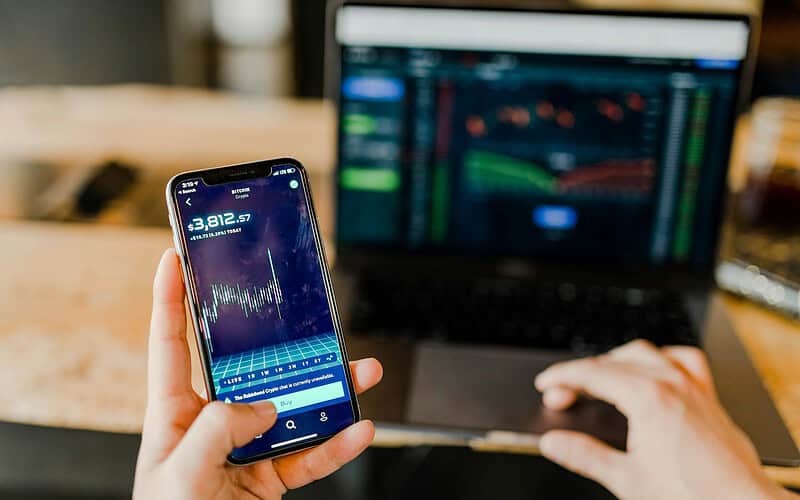
I’ll make this easy: The sooner you start investing, and the more you invest, the sooner you’ll achieve financial freedom. This might put you in with the FIRE folks (Financial Independence, Retire Early), but it does something else, as well:
By prioritizing the growth of your investments, you gradually detach yourself from the need to continuously grow your income. You might not wish to retire early, because you love what you do and sense a bigger purpose in your business. I’m right there with you.
That said, financial freedom, ultimately, is about creating options and liberating yourself from the need for a salary or continued business income.
Figure out what you need to do today so that your investments can pay for your lifestyle tomorrow.
As a digital nomad, there might be a few extra logistical steps to consider and find out where to invest. Ultimately, your goal should be to invest into plain old index funds on the regular. To get you started, I’d suggest you figure out if and how you can invest through a platform such as Fidelity via your country of citizenship or business ownership.
With the logistics figured out, consider going back to your priority budget and see if you can arrange for a bigger portion of your income to be ‘spent’ on investments.
Ideally, your monthly investments are automated so that you don’t even have to think about it.
5. Create freedom-aligned income projections
If you’re following this article as if it were a step-by-step guide to financial freedom (it is!), you have already created your priority-aligned budget. Congrats!
We’re now taking this a step further because chances are that your current lifestyle isn’t your ultimate idea of freedom.
If it is, stop right here and get that cocktail already.
If you’ve still got ways to go, I want you to get crystal clear on what your ideal freedom life will look like.
As digital nomads, we want to live in the moment, soaking in the adventure of the present. I don’t mean to pull you away from that. Rather, I want to offer a way for you to expand on that be-in-the-moment type of deal.
Doing this is a core element of building the infrastructure of a freedom-based business as a digital nomad: money mindset, money creation, money management.
Grab a sheet of paper or open up a spreadsheet, and plan for your ultimate freedom:
- What’s the house you want to live in? The cost?
- What type of accommodation do you want to be able to afford next year? What will it cost?
- Which digital nomad destination do you want to be able to afford? What budget is required for it?
- What sort of support do you want to pay for in your business? What is the cost?
- What adventure do you want to have the budget for?
- …
Do your research to truly understand what each of these items will cost. And begin to put a plan together for how you’ll get there.
These are basic income projections at their core. Except, I want you to do this not from a place of traditional projections, but from a place of abundance and freedom:
Instead of asking, what’s realistic, you’re asking this: “What will true freedom look like and how much will it cost?
Clarifying your northstar will shed unknown clarity on the path you have yet to pave.
6. Establish a strong banking system before leaving (while) home
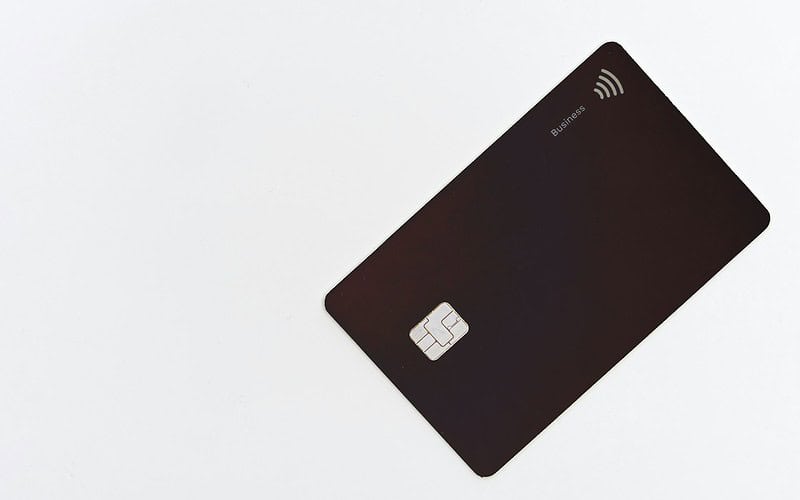
If you’re reading this, you’re likely a digital nomad entrepreneur. You’re spending and billing in varying currencies and have your business registered someplace offshore or in your home country. (You do have a registered business, don’t you?!)
While much of financial freedom comes down to mindset, spending, and planning, it’s crucial to have a tailored digital nomad budget and supportive money management systems in place, as well.
This includes establishing the right business structure for optimized taxes, creating the right bank accounts both for domestic and international transactions, and registering for credit cards that have low foreign transaction fees and lucrative reward systems.
It’s a good idea to do this while home as credit cards ship more easily domestically, and you may have to fill out a form or two for the right banks.
Digital Nomad Money Spending and Habits
7. Pack and shop frugally: minimalism

My boyfriend and I considered buying a third large suitcase as our portable kitchen and bedroom had expanded quite a bit over the years of traveling. Upon checking, we realized that a third piece of luggage would cost us hundreds of dollars. PER TRIP. Depending on the airline.
Not a necessary expense, we’ve decided.
Packing minimalistically encourages more thoughtful spending as well, as you simply don’t have the space, or weight, for all the cute little things here and there.
Consider donating old clothes regularly, or attending clothes trading parties. And do start asking your host for that blender before buying it yourself.
8. Learn how to barter
I used to hate to barter. I felt bad asking for a discount because I make money in a much stronger currency than, say, a Balinese or Thai person does. Then, I realized that bartering was expected and, thus, built into the asked price.
Just like you wouldn’t in your own business, merchants won’t accept a price that’s not sustainable for them. With that trust, it’s easy to barter. I’ve found that most merchants across Southeast Asia (unsure about other bartering countries) will happily accept up to 50% of what they initially ask for.
This isn’t about purchasing power, it’s about landing on a price that’s acceptable for both you and the merchant.
Save that money. Put it towards your priorities.
9. Pay via a Travel Rewards Credit Card
This is by no means a groundbreaking suggestion, but one without which this guide would be incomplete.
Credit cards these days have incredible rewards and not using one might cost you quite a bit of money. If you can save hundreds, if not thousands, of dollars on flights and airport lounges with a card, it’s worth paying that $500 card fee once a year.
As you establish your banking system, be sure to integrate a high-rewards credit card into it. Note that whichever expenses you put on your credit card should be part of your budget. Use the card as if it was a debit card, not for extra credit.
10.Embrace being a slowmad (slow nomad)
Traveling slowly and choosing to stay in one place for longer than a few weeks makes your lifestyle more sustainable both for Mother Earth and your wallet.
I’d also argue it’s healthier on your body as fitness and cooking routines are more easily upheld when it makes sense to get a gym membership and a full fridge.
Why not consider moving to a country for 3 months to give yourself a chance to truly explore the culture of that country? These days, tourist visas in most countries are quite generous, nearly alleviating the need for a digital nomad visa.
The benefits of slow-nomading are endless in my opinion: Airbnb or rental fees become cheaper, you save on flights, you can stock up on groceries, and you can find your favorite restaurant and stick to it for a little while.
11.Homesit
Since you’re likely quite flexible with travel dates and destinations, you might have a chance at entirely eliminating rent for a little while.
House and pet sitting is a beautiful way to save on costs, get your dog/cat fix in, and live in some quite beautiful homes for free.
People who put their houses on sites like TrustedHousesitters tend to have beautiful homes and no need to make money off of AirBnB while they’re gone.
It’s a wonderful way to help a fellow human out while saving big-time.
12. Rent like a local
Having mentioned housesitting and AirBnB, I’ll finish off by suggesting that you learn to go through locals, local realtors, and Facebook groups to find local rent.
In the spirit of abundance, doing so will not only help you save money as a digital nomad but most likely gain you access to a much higher quality of living.
If you combine renting locally with slowmading, you can easily rent an Airbnb for a couple of weeks while you find yourself a temporary home through a realtor.
This will eliminate all the extra fees you’d normally pay and give you a chance to explore your slowmad house in person before putting down money.
Everybody wins. And the money you save? Put 50% towards adventuring and 50% towards investments.
Conclusion
Combining your (likely) slightly rebellious digital nomad mindset with a robust financial freedom system can lead to wonderful abundance both in the present moment and the long term.
I suggest you implement the tips offered in this guide one step at a time so that you can begin to live more abundantly TODAY while building financial independence slowly, one day at a time.
If you travel with a partner, be sure to think of these steps as conversation-starters and ways to put action to your words.
Finally, don’t be afraid to seek out help. This can be a comment below, an private email to me or a fiend, or the joining of a community of like-minded people.
Tell me below, what do you love most about being in charge of creating your very own financial freedom?
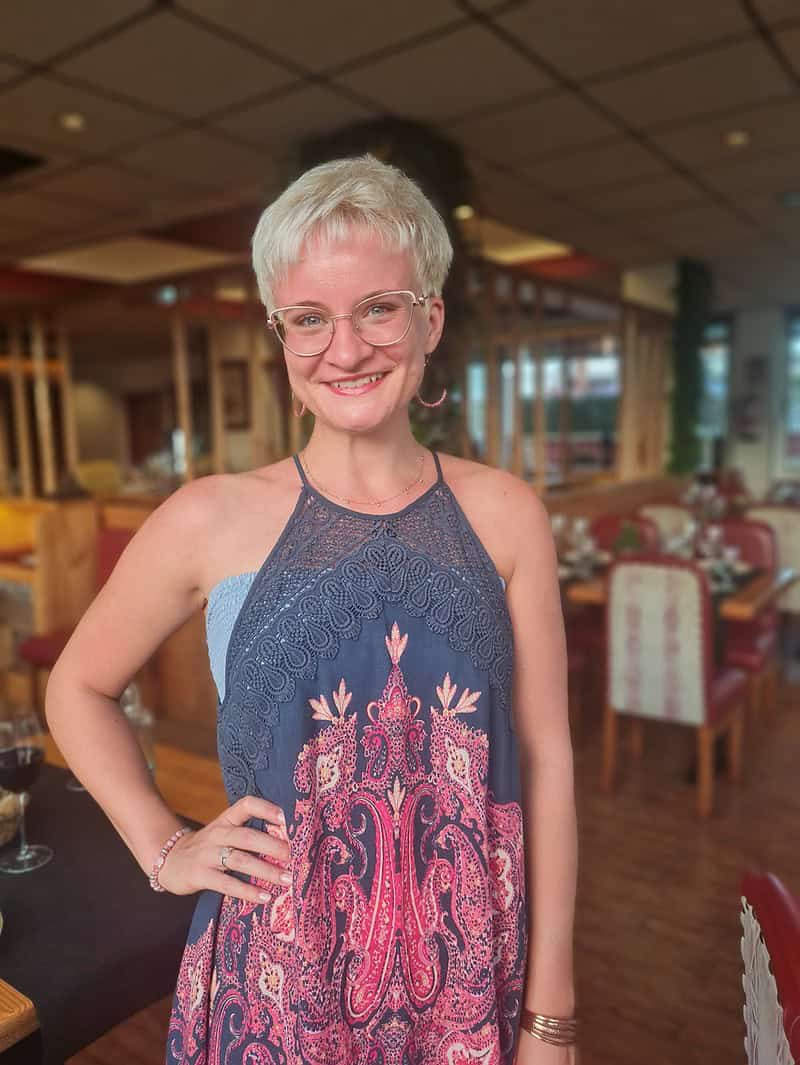
About the Author
Dina-Marie Weineck is a professional coach and creator of Way of the Founder, the corner of the internet where holistic success converges with spiritual exploration and perpetual travel. Both on her blog and as a professional coach, she serves digital nomad entrepreneurs and other location-independent business owners in creating freedom through purpose-aligned innovation. Download her free guide on creating purpose-aligned business goals and follow her travels on Instagram.
